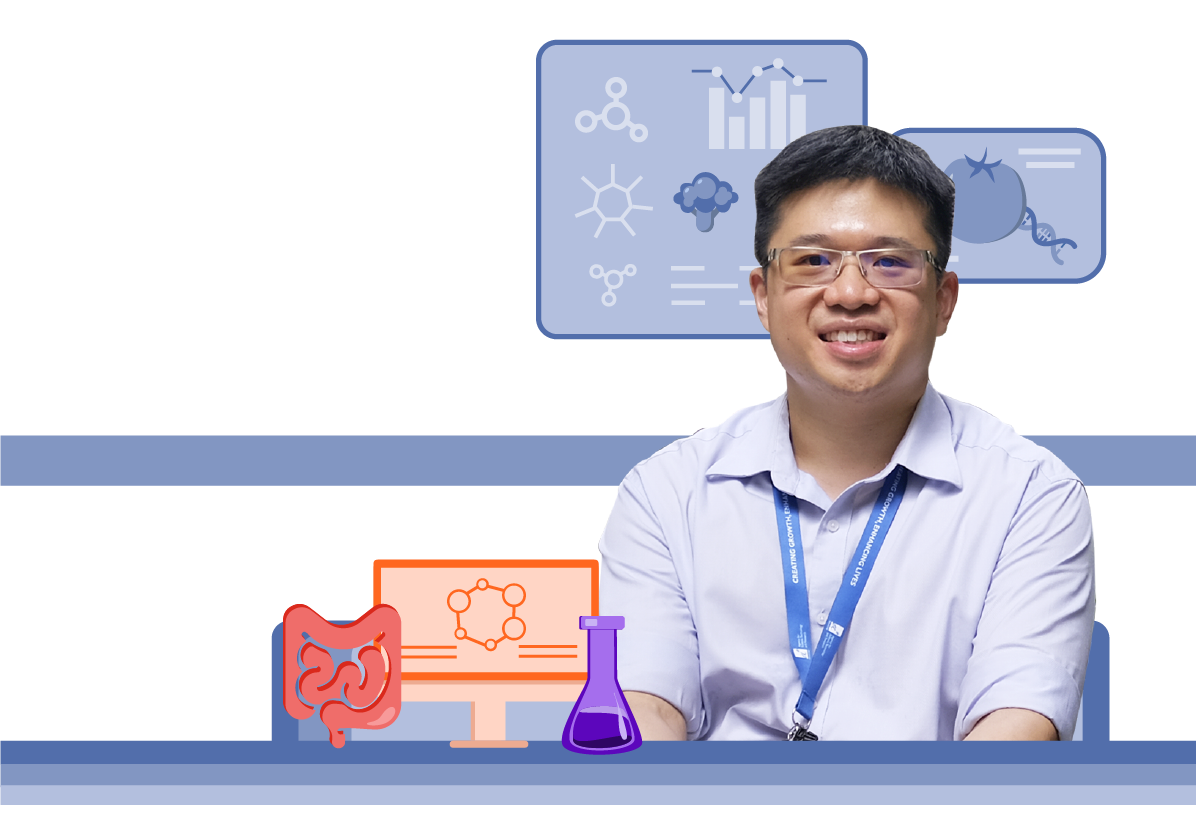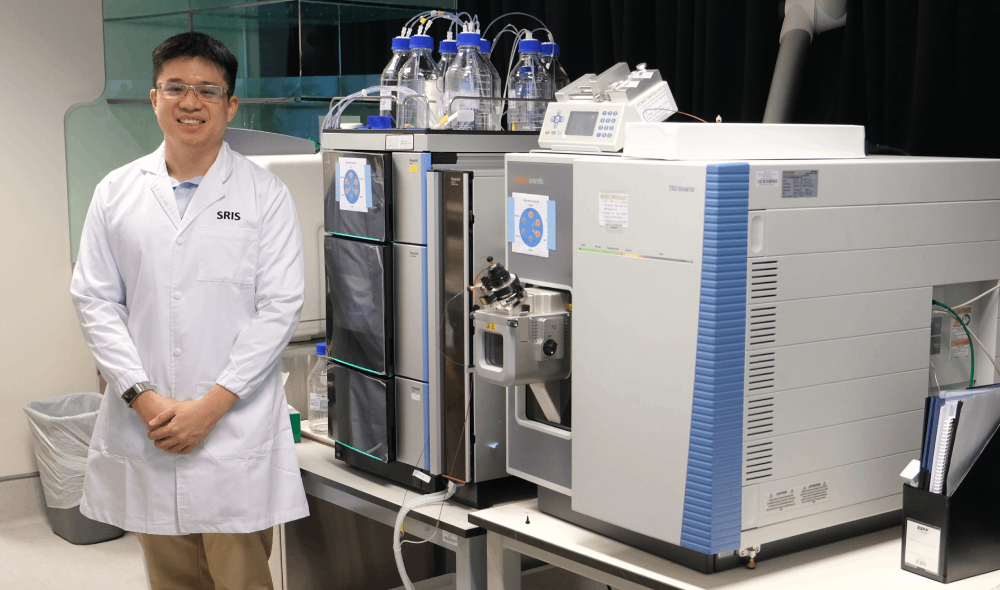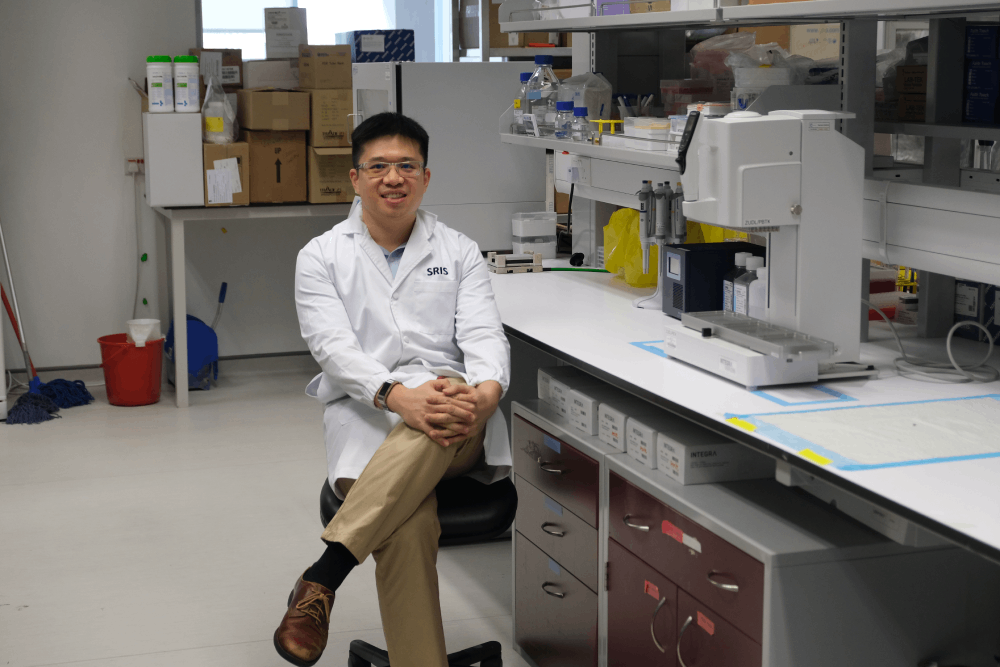He knows if a chemical helps or harms you
Dr James Chan wants to figure out this complex system as it impacts a wide range of products that we use and consume

If the human circulatory system were a highway network, Dr James Chan would be a traffic patrol officer who monitors what passes through, checks any bottlenecks and keeps the roads safe.
His work takes him deep within the human body to uncover the routes that chemicals take once they enter the bloodstream. This science of understanding the internal exposure of a chemical within the body is also known as toxicokinetics.
How much of the chemical is absorbed, where it travels in the body, whether it accumulates in an organ, tissue or if the body expels it all influence its harmfulness.
“Before we look at pharmaco- or toxicodynamics – what good or bad effects the chemical can elicit – we need to see how much reaches the location. This gives us context to interpret toxicity test results,” said the 33-year-old.
“If very little (of a toxic chemical) gets into the body, then there is a minimal harmful effect.”
This field of study is important in assessing the safety of a wide range of products, from drugs to cosmetics and food additives.
Dr Chan is a platform leader at the Agency for Science, Technology and Research (A*STAR)’s Innovations in Food and Chemical Safety (IFCS) Programme. Currently, he also leads a team working to build a physiologically-based toxicokinetic platform.

The platform is essentially a mathematical model of the human body that is anatomically and physiologically accurate. Using this virtual human model, scientists can investigate how the body responds without actually doing tests on humans.
It can be customised for different populations, which makes it a valuable tool. For instance, it would be particularly useful for studying children and the elderly, who are more prone to risks when exposed to certain chemicals.
“If we can measure and understand the differences between different groups of people, we can then customise our virtual model and make personalised predictions on the impact of a chemical on a certain population,” he said.
This marrying of mathematics and biology was what made him fall in love with his field of research in the first place.
When equations explain living systems
In his early undergraduate years as a pharmacy major at the National University of Singapore, Dr Chan saw mathematics and biology as independent disciplines. But that changed when the scientist took a module on pharmacokinetics, which is a study of the movement of drugs into, through and out of the body.
“Assemble the right mathematical equations together and you get a model that can be used to predict how a body reacts under different circumstances,” he explained.
His field of research has resulted in the creation of chemical risk assessment methods that can replace animal testing, which are not always reliable in predicting a human response.
He frequently engages the industry and regulators to raise awareness of these alternative chemical testing methods, he reckons that it will take five to 10 years before non-animal tests become mainstream.
Time is needed for risk assessment frameworks to be revamped, he explained.
But if there is one thing that research has taught him, it is to be dogged.
The longest he has ever been stuck on a problem is two years, when he was trying to develop a new method for proteomics – the study of proteins – during his PhD days.
“It’s called research because you search and re-search until you find a solution. I have seen it so many times that when we work at it long enough from different angles, the solution will present itself,” he said.
“I’ve developed an immunity to failure.”

Stay tuned for the next installment of the Future of Food: Faces of A*STAR series and find out more about A*STAR's food innovation capabilities here.
Watch the video below to learn more about A*STAR's Innovations in Food and Chemical Safety (IFCS) Programme.
A*STAR celebrates International Women's Day

From groundbreaking discoveries to cutting-edge research, our researchers are empowering the next generation of female science, technology, engineering and mathematics (STEM) leaders.
Get inspired by our #WomeninSTEM
